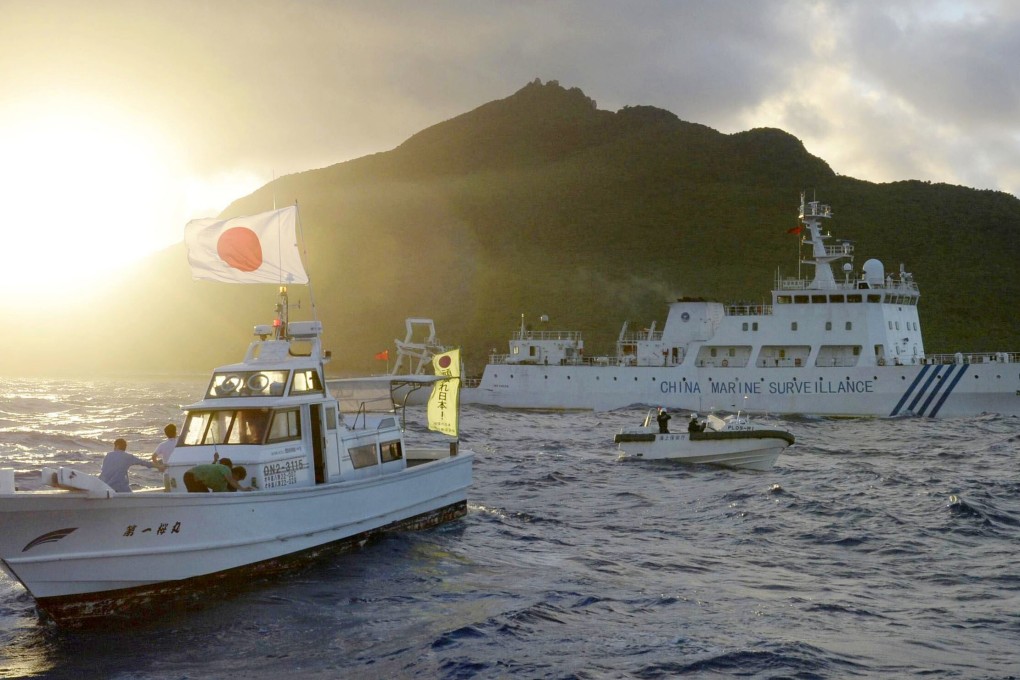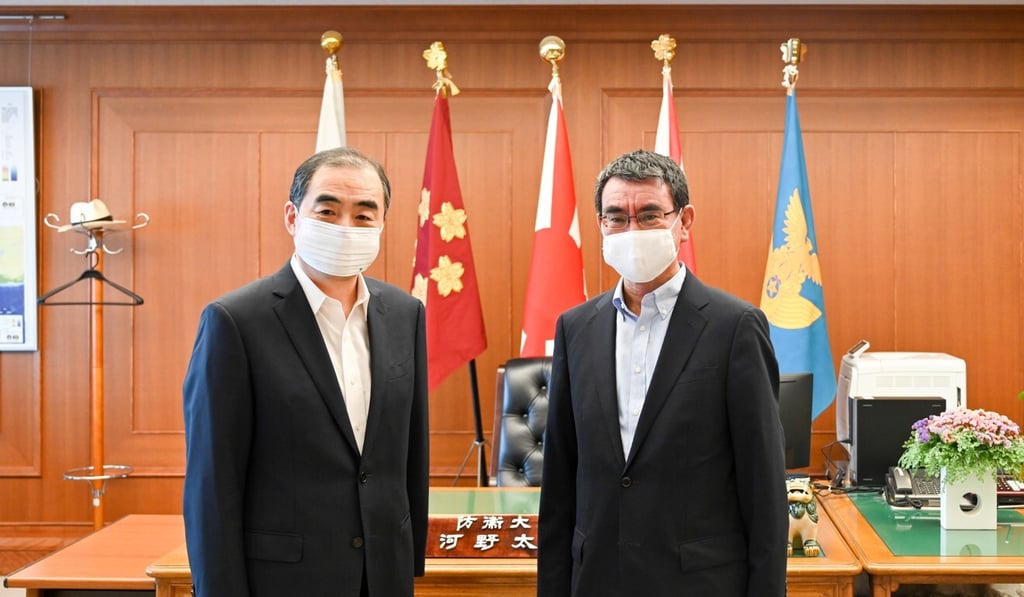Diaoyu Islands: Japan’s defence minister expresses ‘strong concern’ over China’s activities
- Defence minister Taro Kono has told China’s ambassador that Beijing should refrain from activities around the disputed islands, known as the Senkaku Islands in Japan
- The meeting came a day after members of the ruling Liberal Democratic Party formed a group to discuss proposals to reinforce Japan’s sovereignty over the archipelago

In the 40-minute meeting at the defence ministry in Tokyo, held at the request of the Chinese embassy, Japanese public broadcaster NHK reported that Kono also told ambassador Kong Xuanyou his country should refrain from activities around the islands, which are controlled by Japan and also claimed by mainland China and Taiwan.
In a statement, the Chinese embassy in Japan said Beijing was willing to promote dialogues at all levels between the countries’ defence agencies “to build a constructive Sino-Japanese security relationship”, adding that Kono had said Tokyo was willing to strengthen defence exchanges and cooperation.
Japan last month accused Chinese government ships of repeated intrusions into its territorial waters around the islands, while Beijing has in the past repeatedly stated that the islands are Chinese territory and that its forces have the right to carry out law enforcement activities in waters surrounding the archipelago.
The meeting came a day after more than 60 members of Japan’s ruling Liberal Democratic Party (LDP) set up a study group that intends to call on the government to take additional measures to underline Japan’s sovereignty over the disputed islands.
Tokyo has been alarmed at the growing pressure Chinese government ships are exerting on the region, with Chinese vessels present in territorial waters or the surrounding contiguous zone for a record 111 consecutive days until earlier this month.
